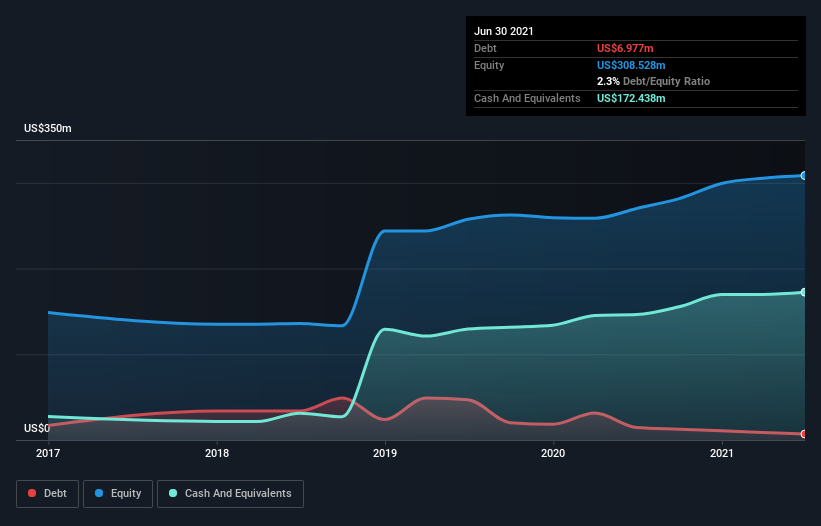Is Upwork (NASDAQ:UPWK) Using Debt In A Risky Way?
Warren Buffett famously said, 'Volatility is far from synonymous with risk.' So it seems the smart money knows that debt - which is usually involved in bankruptcies - is a very important factor, when you assess how risky a company is. As with many other companies Upwork Inc. (NASDAQ:UPWK) makes use of debt. But is this debt a concern to shareholders?
When Is Debt Dangerous?
Debt and other liabilities become risky for a business when it cannot easily fulfill those obligations, either with free cash flow or by raising capital at an attractive price. Ultimately, if the company can't fulfill its legal obligations to repay debt, shareholders could walk away with nothing. While that is not too common, we often do see indebted companies permanently diluting shareholders because lenders force them to raise capital at a distressed price. Having said that, the most common situation is where a company manages its debt reasonably well - and to its own advantage. The first thing to do when considering how much debt a business uses is to look at its cash and debt together.
View our latest analysis for Upwork
What Is Upwork's Net Debt?
The image below, which you can click on for greater detail, shows that Upwork had debt of US$6.98m at the end of June 2021, a reduction from US$14.5m over a year. But it also has US$172.4m in cash to offset that, meaning it has US$165.5m net cash.
A Look At Upwork's Liabilities
Zooming in on the latest balance sheet data, we can see that Upwork had liabilities of US$232.4m due within 12 months and liabilities of US$28.3m due beyond that. On the other hand, it had cash of US$172.4m and US$62.2m worth of receivables due within a year. So its liabilities total US$26.1m more than the combination of its cash and short-term receivables.
This state of affairs indicates that Upwork's balance sheet looks quite solid, as its total liabilities are just about equal to its liquid assets. So while it's hard to imagine that the US$5.71b company is struggling for cash, we still think it's worth monitoring its balance sheet. Despite its noteworthy liabilities, Upwork boasts net cash, so it's fair to say it does not have a heavy debt load! There's no doubt that we learn most about debt from the balance sheet. But it is future earnings, more than anything, that will determine Upwork's ability to maintain a healthy balance sheet going forward. So if you want to see what the professionals think, you might find this free report on analyst profit forecasts to be interesting.
In the last year Upwork wasn't profitable at an EBIT level, but managed to grow its revenue by 34%, to US$441m. Shareholders probably have their fingers crossed that it can grow its way to profits.
So How Risky Is Upwork?
Although Upwork had an earnings before interest and tax (EBIT) loss over the last twelve months, it generated positive free cash flow of US$9.0m. So although it is loss-making, it doesn't seem to have too much near-term balance sheet risk, keeping in mind the net cash. One positive is that Upwork is growing revenue apace, which makes it easier to sell a growth story and raise capital if need be. But that doesn't change our opinion that the stock is risky. There's no doubt that we learn most about debt from the balance sheet. But ultimately, every company can contain risks that exist outside of the balance sheet. Case in point: We've spotted 4 warning signs for Upwork you should be aware of.
If you're interested in investing in businesses that can grow profits without the burden of debt, then check out this free list of growing businesses that have net cash on the balance sheet.
This article by Simply Wall St is general in nature. We provide commentary based on historical data and analyst forecasts only using an unbiased methodology and our articles are not intended to be financial advice. It does not constitute a recommendation to buy or sell any stock, and does not take account of your objectives, or your financial situation. We aim to bring you long-term focused analysis driven by fundamental data. Note that our analysis may not factor in the latest price-sensitive company announcements or qualitative material. Simply Wall St has no position in any stocks mentioned.
Have feedback on this article? Concerned about the content? Get in touch with us directly. Alternatively, email editorial-team (at) simplywallst.com.

